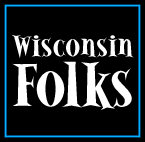|


Pomeranian Dance, Music and Song
Freistadt, WI
Vocabulary
17th century: the years 1600-1699.
Accurate: Correct.
Choreograph: (sounds like, KORE-e-o-grafs) To design or arrange.
Components: Parts
Context: Situation, circumstance.
Documentation: Records.
Ensemble: (sounds like, on-SOM-bull) Group.
Freistadt: (sounds like, FRY-schtott) free city.
Host: To receive and entertain others.
Lutheran: A member of the Protestant Christian religion Lutheranism.
Lures: To attract.
Lyrics: (sounds like, LEER-icks) Words of a song.
Performing art: Art performed before a live audience.
Personal identity: A person’s understanding of himself or herself.
Pomerania: a region in Europe along the Baltic Sea. It used to be part of the Prussian Kingdom, and then part of the German Empire. Now it is a part of Germany and Poland.
Pommerntag: An annual festival to celebrate Pomeranian culture held in Mequon, Wisconsin.
Pommersche: (sounds like, PUMM-sheh) Pomeranian.
Popularity: Regard, reputation.
Reenact: (sounds like, ree-en-ACT) To act out a past event.
Replica: A copy of an original item.
Revive: (sounds like, ree-VIVE) To make alive again.
Strive: To try very hard; to make every effort.
Suite: (sounds like, SWEET) A group of connected things, like songs or dances, that together become a unit or collection.
Tanzdeel: (sounds like, TONTS-dale) Dance group
Tracht: (sounds like, TRAHKT) The clothing of a particular group of people at a particular time in history.
Translation: The meaning of a word in another language.
Troupe: (sounds like, TROOP) Performing group.
back to top
Journal Questions
 Have
you ever had a really good idea on the bus? What was it? Did you make your idea
happen? Have
you ever had a really good idea on the bus? What was it? Did you make your idea
happen?
 Is
a part of your personal identity connected to your ethnic heritage? Do the foods
you eat, the songs you sing, the holidays you celebrate, or the games you play
come from your ethnic heritage? Is
a part of your personal identity connected to your ethnic heritage? Do the foods
you eat, the songs you sing, the holidays you celebrate, or the games you play
come from your ethnic heritage?
back to top
Resources For Teachers
 The
Pommerscher Verein
Freistadt, or Pomeranian Society of
Freistadt, is one of the three Pomeranian groups in Freistadt. Their site tells about the Society and upcoming events, and supports genealogical research for Pomeranian ancestors. It is available in
German also. The
Pommerscher Verein
Freistadt, or Pomeranian Society of
Freistadt, is one of the three Pomeranian groups in Freistadt. Their site tells about the Society and upcoming events, and supports genealogical research for Pomeranian ancestors. It is available in
German also.
 The
Max Kade Institute at the University of Wisconsin-Madison is an excellent
resource for German-American studies. They provide special resources for educators, including workshops and lesson plans. Look for their on-line articles about German-American Wisconsin history, such
as Some German Contributions to Wisconsin Life by Lester W. J. Seifert (1983). The
Max Kade Institute at the University of Wisconsin-Madison is an excellent
resource for German-American studies. They provide special resources for educators, including workshops and lesson plans. Look for their on-line articles about German-American Wisconsin history, such
as Some German Contributions to Wisconsin Life by Lester W. J. Seifert (1983).
 For archival research, see this listing of the holdings on
German Americans in Wisconsin held by the
University of Wisconsin-Milwaukee library. For archival research, see this listing of the holdings on
German Americans in Wisconsin held by the
University of Wisconsin-Milwaukee library.
back to top
Resources For Students
 The oldest Lutheran church in Wisconsin was founded by Pomeranians in Freistadt in 1839. Learn more about the church’s and
community’s history in this Milwaukee Journal Sentinel newspaper article, “At Trinity, History is Family.” The oldest Lutheran church in Wisconsin was founded by Pomeranians in Freistadt in 1839. Learn more about the church’s and
community’s history in this Milwaukee Journal Sentinel newspaper article, “At Trinity, History is Family.”
 Want to see what the annual Pommerntag
celebration in Mequon looks like? Then take a look at these
photos taken by Mark Justesen. Want to see what the annual Pommerntag
celebration in Mequon looks like? Then take a look at these
photos taken by Mark Justesen.
 The Pommersche Tanzdeel Freistadt performs at the annual Holiday Folkfair International.
This is a very popular event in Milwaukee; about 45 different ethnic groups participate, sharing their culture in interesting ways. The Pommersche Tanzdeel Freistadt performs at the annual Holiday Folkfair International.
This is a very popular event in Milwaukee; about 45 different ethnic groups participate, sharing their culture in interesting ways.
 Interested in Pomeranian food traditions? The Wisconsin Gardener, a show on Wisconsin Public Television, aired a program on
historic Pomeranian gardening traditions. Read the transcript here for An 1880’s Historic Ethnic Garden. Interested in Pomeranian food traditions? The Wisconsin Gardener, a show on Wisconsin Public Television, aired a program on
historic Pomeranian gardening traditions. Read the transcript here for An 1880’s Historic Ethnic Garden.
The show was filmed at one of the Pomeranian houses in Old World Wisconsin, in Eagle. Have you ever visited there? It’s a great place to
learn about Wisconsin’s immigrant traditions! Go on a virtual tour of
the
 Milestones in Pomeranian History outlines the history of
Pomerania from 1200 BC to 1991. Milestones in Pomeranian History outlines the history of
Pomerania from 1200 BC to 1991.
back to top
Credits
Text written by Jamie Yuenger, edited by Anne Pryor.
Sources consulted include phone interviews with George Radtke by Jamie Yuenger (September 2002), The Atlas of Ethnic Diversity in Wisconsin: The University of Wisconsin Press, 1998; Pomeranian
Customs and Culture by Pommerscher Verein Freistadt: Germantown, WI, 1986 (housed at Max Kade Institute).
Sound clips from Sie Haben Die Musik Nicht Vergessen! by Pommersche Spadeel Freistadt (compact disc).
Map “Provinz Pommern 1939” used with permission of creator, Gunthard Stübs.
back to top
 |


